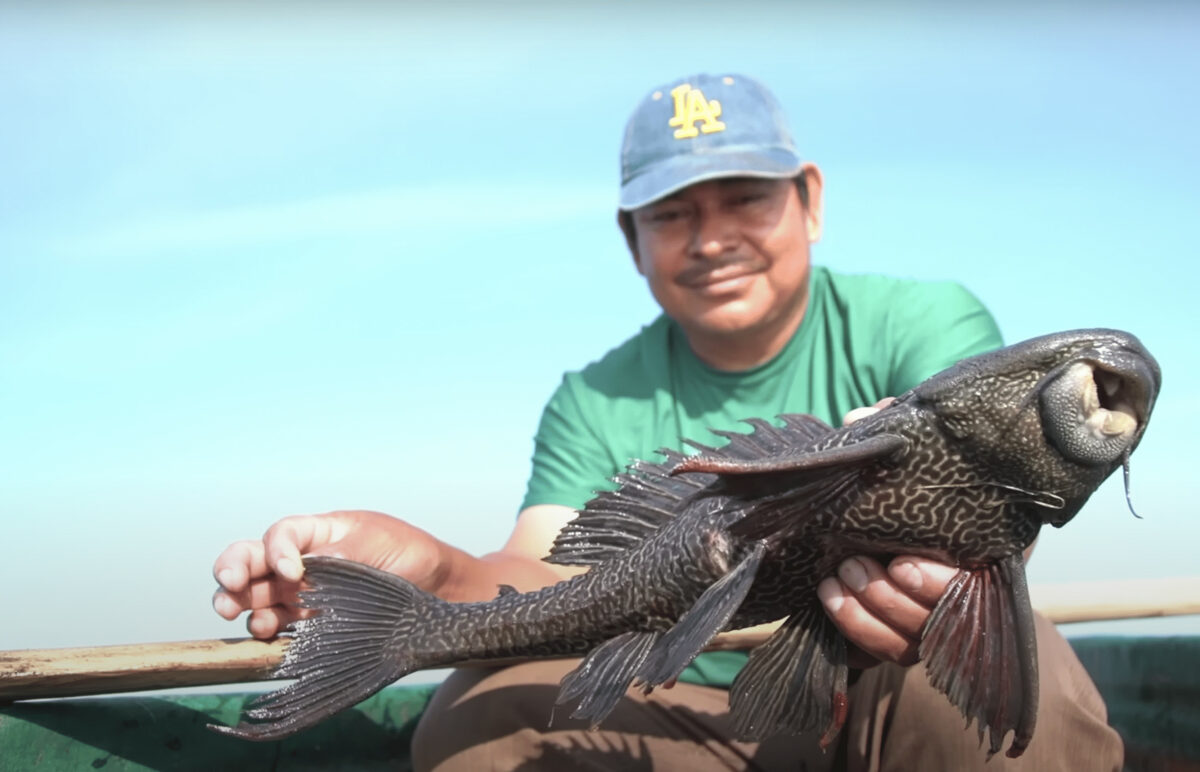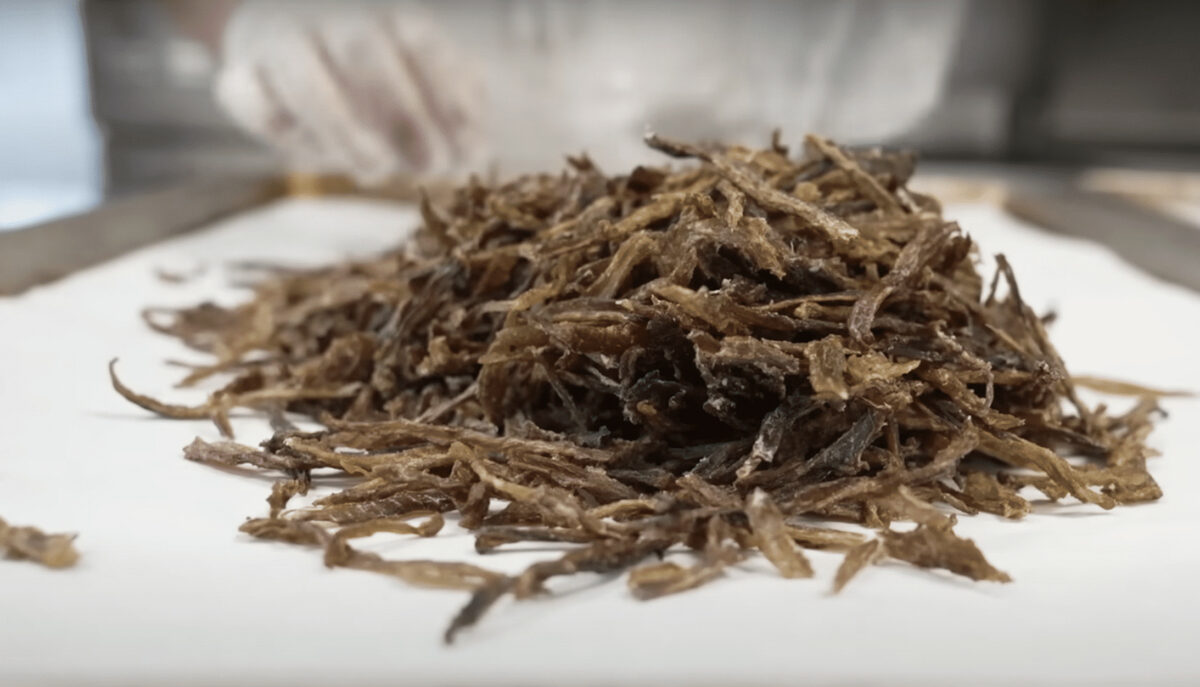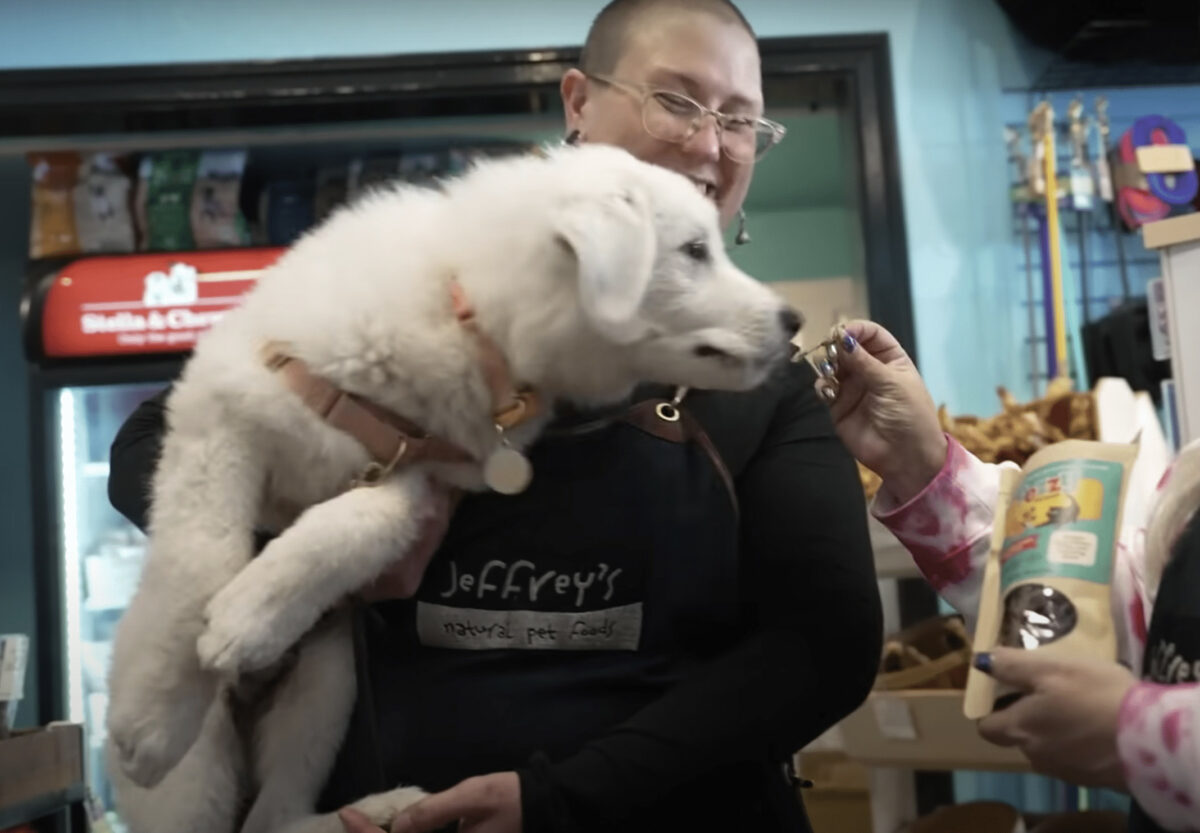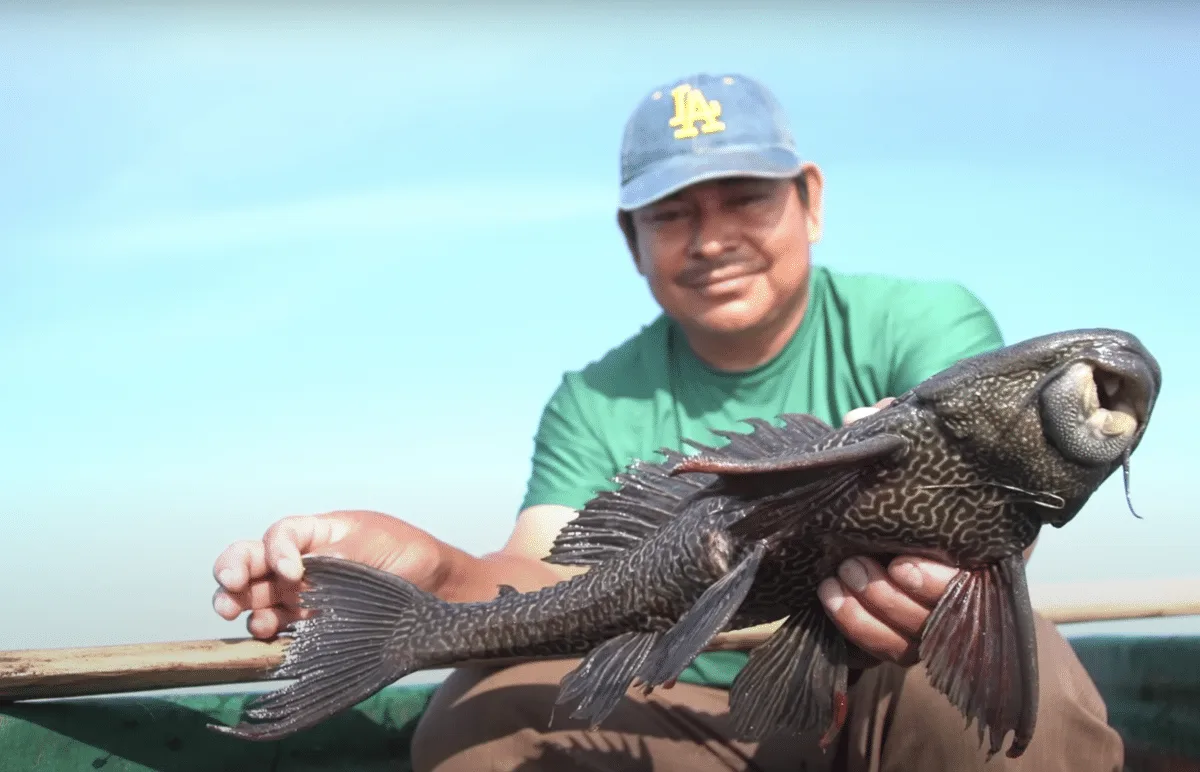The armored catfish, or Mexican devil fish has invaded North American waterways and this hardy invasive species is wreaking havoc on local ecosystems and economies. However, a glimmer of hope emerges through innovative solutions like Pezzy Pets, a company that upcycles these invasive fish species into pet treats.

Mike Mitchell, the CEO and Co-Founder of Pezzy Pets, delves into the importance of tackling invasive species and the sustainable production process that transforms these invaders into delectable treats.
The Menace of Invasive Species
Invasive species, often relocated due to climate change or human activities, wreak havoc on native ecosystems, leading to biodiversity loss, economic repercussions, and even threats to human health. Aquatic invasive fish species, such as the armored catfish, lionfish, and silver carp, create a significant threat to indigenous aquatic species in North America by outcompeting them and rendering their habitats uninhabitable. These invaders can rapidly multiply due to the lack of natural predators in their new environments, leaving native species struggling to survive.
The Armored Catfish: A Persistent Invader
The armored catfish, also known as the Mexican devil fish (pez diablo in spanish), is a notorious invasive species, native to the Amazon but now found in various Mexican and American states. These armored invaders possess a unique set of characteristics that enable them to adapt and thrive in various environmental conditions. With their protective bony plates, rapid rates of reproduction and their ability to survive extended periods out of water due to their vascularized stomach makes them tough competition for the native fish species.
Armored catfish don’t stop at disturbing local ecosystems; they’ve even been observed clinging to manatees in Florida, scraping algae from their hides and ultimately altering their behavior. This invasive species poses a significant economic threat, disrupting fisheries and affecting the livelihoods of countless fishermen.
Pezzy Pets: An Innovative Solution
Mike Mitchell, the CEO and Co-Founder of Pezzy Pets, found himself in the midst of the invasive fish species dilemma while working with small-scale fishermen in Mexico. Witnessing the environmental and economic havoc caused by these invaders, he decided to take action. Partnering with chef Lupita Vidal, they initially conducted workshops and cooking demonstrations using invasive fish.
These humble beginnings eventually led to the birth of Pezzy Pets, a company dedicated to upcycling invasive fish species. They transform these invaders into healthy pet treats for dogs and cats, offering a sustainable solution to combat the invasive species problem.

Upcycling Invasive Species into Pet Food
Pezzy Pets takes a unique approach to upcycling invasive fish species such as armored catfish, lionfish and silver carp, focusing on sustainable practices and eco-friendly packaging. Invasive fish are transformed into “single and limited ingredient” pet treats, ensuring both environmental and nutritional benefits. Pezzy Pets has streamlined the production process by working with approximately 100 fishermen from different supply chains, reducing complications and additional costs related to handling these live fish.
The products, once processed, are packaged in 100% compostable materials, reflecting Pezzy Pets’ commitment to eco-friendly practices. The final pet treats are then available in stores for dogs and cats to enjoy.

Positive Impact: Beyond Pet Treats
Pezzy Pets’ commitment extends beyond creating pet treats from invasive species. The company has made a significant impact on local economies by providing better wages to employees. Fishermen have the opportunity to double or triple their daily income by selling invasive fish by-catch to Pezzy Pets. In addition, Pezzy Pets has removed over 100 tons of armored catfish in Southern Mexico, contributing to the restoration of native fisheries.
Watch Video: Turning Invasive Fish Species into Pet Treats
What Consumers Can Do To Help
As invasive species continue to spread, it is crucial to address the issue and implement solutions to combat the destructive spread of these organisms. The combination of invasive species and environmental issues like climate change and pollution creates challenges for native ecosystems and organisms. The spread of invasive species is often exacerbated by these environmental problems, making it essential to take action.
Consumers can play a pivotal role in addressing the invasive species problem. By choosing products like Pezzy Pets’ pet treats made from invasive fish, consumers can make a tangible impact. These choices not only support the environment but also contribute to the restoration of native ecosystems.
Conclusion
In conclusion, Pezzy Pets exemplifies the potential for innovative solutions to combat invasive species and restore the balance in our ecosystems. By transforming invasive fish species into pet treats, Pezzy Pets not only provides nutritious and eco-friendly options for pets but also offers a sustainable approach to addressing the invasive species problem. The company’s success demonstrates the power of individual choices in making a positive impact on the environment. So, the next time you give your furry friend a treat, consider making a choice that helps restore the environment, one bite at a time.
What do you think about turning invasive fish species into pet treats? Leave a comment below.
Thank you for following along with this article – Turning the Tide: Upcycling Invasive Fish Species into Pet Treats.
You may also like:
- Fisherman Catches 67-Pound Goldfish Called Carrot
- Fisherman Catches a Massive Fish With a Barbie Fishing Rod in Oregon
- 13 Best Lakes In The United States For Fishing
- India’s Snow Leopard Survey Reveals 718 Individuals - February 25, 2024
- 10 Interesting Facts About Seahorses - February 24, 2024
- Sea Turtle Nests Discovered in Cambodia - February 24, 2024


